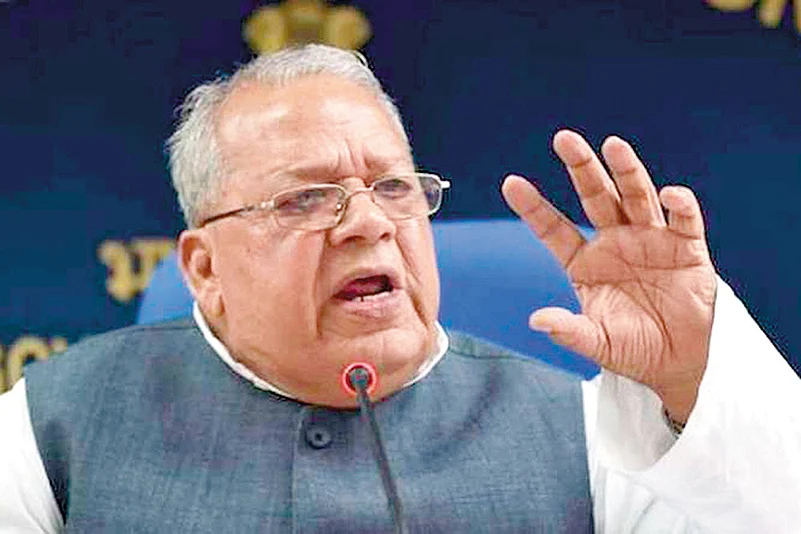As the file requesting the convening of a special Assembly session went to and fro between Rajasthan CM Ashok Gehlot and Raj Bhavan, Congress fielded its legal eagles to take on governor Kalraj Mishra, alleging he was acting beyond his constitutional powers.
Gehlot asked for a session to be convened on July 31, but Mishra said a notice of 21 days was required. He replied that a session could be convened at a short notice only if the government wanted to prove its majority, which the Gehlot government shied from putting on paper. Mishra later relented and convened the assembly on August 14.
Former Lok Sabha secretary general P.D.T. Achary says, “The conduct of governors has been questioned under all central governments, but something like this is happening for the first time. A state government wants to convene a session and prove its majority, but the governor is stalling. Generally, it’s the other way around. Why wait for 21 days?”
He contends that the governor has no powers in this situation. “He merely has to put his signature on the file. He can seek clarifications, for example, about COVID-19 and social-distancing arrangements. Once the clarification is given, he has to sign. It is the elected government that is responsible to the legislature,” explains Achary.
According to him, calling for an assembly session is an executive power exercised only by the government, not by the governor. He can use his discretionary powers only if the government loses its majority. He can then call for the assembly session and dismiss the government. He can also appoint a chief minister in that case since there is no council of ministers to offer advice.
However, constitutional expert Subhash Kashyap says that the governor has not overstepped his powers. “While Article 163 of the Constitution says that he has to act on the advice of the council of ministers, but if he chooses to act on his discretion as per Article 163(2), he cannot be questioned,” he says.
There is an unwritten caveat to it, though. “The Governor has to be reasonable while exercising discretionary powers and act in a non-partisan and non-political manner,” adds Kashyap.
He recalls how governments were dismissed in Uttar Pradesh. In 1970, UP chief minister Chaudhary Charan Singh’s government was unceremoniously dismissed and President’s rule imposed without a valid reason. Again, in 1996, the role of governor Romesh Bhandari came under a cloud as UP threw up a hung assembly. Bhandari’s actions were seen as blatantly partisan—the state remained under President’s rule for almost six months. Kashyap recalls that Bhandari often sought his advice, but seldom heeded it. “In fact, he would do just the opposite,” he says.
Achary feels it’s time to define the powers of the governor more clearly. “And also, maybe, set up hotels exclusively for MLAs under house arrest and have a separate budget for their hospitality,” he adds.


























